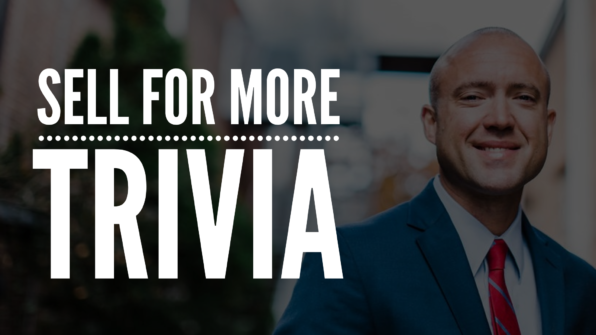Sell for More Trivia is a weekly blog series that playfully presents a trivia question about commercial real estate.
What is a zero cash flow property?
A zero cash flow property (called a “zero”) is a highly leveraged asset with in-place, assumable, fixed-rate, long-term financing (typically 15-25 years) paired with an absolute net lease guaranteed by an investment grade credit.
The high leverage nature is such that all NOI goes directly to servicing the debt. Zeros are commercial properties that produce no cash flow to the owner.
Who buys zeros?
The largest pool of zero buyers are those with a 1031 exchange need.
A zero is attractive to exchange buyers who want to put little or no cash (equity) into a deal.
How are zeros priced?
The most common method of pricing net lease investments is by using a cap rate, which is a one year cash rate of return on the purchase price ignoring leverage. Given the high-leverage structure resulting in no cash flow, cap rates are typically ignored on zeros.
These assets are priced instead based on the equity investment over the existing debt, expressed as a percentage of equity over the debt.
Pricing of zeros will vary due to factors including the loan structure (fully amortizing vs. balloon), maturity of the loan/lease, perceived residual value, and availability of paydown, among others.
Zeros remain near their all-time high pricing at a range of 12% to 24% equity over the debt.
With the current market uncertainty, why zeros?
The phrase “cash is king” has never been more true than it is right now, as we’re seeing investors place great importance on liquidity. Because zeros require minimal equity, they are the most economical way to purchase a net lease asset, obtain a long-term lease, and defer your tax burden.
Zeros can also be a great solution for 1031 exchange needs resulting from deed-in-lieu or foreclosure scenarios. Both are considered by the IRS to be a sale of the asset to the lender, resulting in possible gains that can be deferred by a 1031 exchange.
Lastly, a cornerstone of a zero cash flow asset is its long-term, non-recourse, fixed rate financing that is readily assumable. Because zeros are acquired with an in-place loan, the investor isn’t restricted by the lack of financing options currently available.
(FREE PROMOTION) Find out how much your property is worth, for free, before you list it for sale. Get the blueprint to sell your property for the highest price the market will pay (click here)
How to get an unfair advantage. Click here to join Sell for More Club today.
Own a business? 90% of business owners don’t know the market value of their business. If you’re considering selling a business, click here for a free business valuation.
About Beau Beach, MBA CCIM
Beau is a tenacious Commercial Real Estate Broker, author and adoring father of four. His clients appreciate his no-nonsense demeanor and his legendary work ethic.
Beau leads Beachwood which is a commercial real estate broker for sellers in the Nashville, Milwaukee and South Florida markets.
He’s the author of the books The 3 Reasons: Why Most Commercial Properties Don’t Sell and True Wealth: What Every Seller Should Know About 1031 Exchanges.
Beau can be reached at 800-721-3287, click to schedule a call or Beau@soldbybeachwood.com
